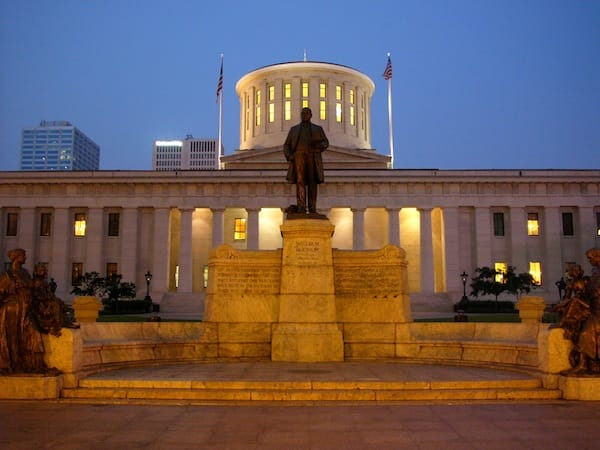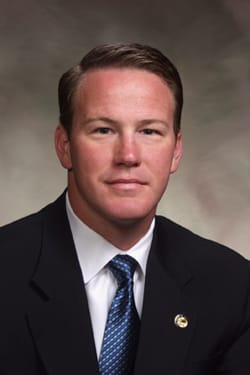Ohio's Issue 2 Would Shift Redistricting Power

Photo Credit: Ohio Tourism Division, www.DiscoverOhio.com

In Ohio, much like elsewhere in the United States, elected officials are responsible for rewriting geographic districts every 10 years in an effort to keep up with political, racial, linguistic, religious or socio-economic shifts throughout the state. would shift redistricting power in the state by amending the Ohio Constitution. The initiative would convert the way the state’s Congressional and legislative boundaries are drafted by barring elected officials from sitting on the redistricting commission and, instead, replacing these politicians with a commissioned panel of "four affiliated with the largest political party, four affiliated with the second largest political party and four not affiliated with either of the two largest political parties. Affirmative votes of 7 of 12 members are needed to select a plan."
If approved, the commission would be immediately required to rewrite districts previously established by elected officials.
The Office of Budget and Management estimates that operating the commission specified by Issue 2 would cost $11 million to $15.2 million over the next eight years and would be paid for by taxpayer dollars.
Proponents of the effort, including the Ohio League of Women Voters, say that the current system favors the party in power. Legislators exploiting the use of redistricting for a political edge, also known as gerrymandering, is not unheard of.
In Ohio, a strategy known as packing, or concentrating as many voters of a party into a single electoral district, is common. The goal of Issue 2 is to minimize the power that a certain party, be it Democratic or Republican, has on the party doing the gerrymandering.
J. Michael Houlahan is a freelance journalist speaking for Voters First, the group backing Issue 2. He said that the initiative would assist in the prevention of gerrymandering in Ohio, which has drastically increased with the advancement, and accessibility, of computing.
We've had five consecutive redistrictings every 10 years, where they've gerrymandered it. Twice it was the Democrats. Three times it was the Republicans. Gerrymandering is now far, far more sophisticated because of computers. You can do amazing things with computers.
Many in opposition to the amendment, including Ohio Secretary of State Jon Husted (R), say the initiative would give too much power to unelected officials who do not necessarily have the same level of accountability as elected officials.
It's time that both political parties stop trying to end run the process and sit down with one another and try to do something that's fair and that they can agree upon.
Other points of contention on the issue include its funding. Language in the initiative originally stated that Issue 2 would “mandate the General Assembly to appropriate all funds as determined by the commission.” Husted said that meant the commission would be handed a blank check without any accountability. Husted

Voters First Ohio sued over what they said was misleading language on the ballot. The Ohio Supreme Court ruled on September 12 that the proposal would not provide the commission with unlimited funds, but it did agree, 6 to 1 with Voters First, that the language would need to be clarified for voters.
The court said that the issue does not entitle the commission to unlimited taxpayer dollars and that, if the commission were to ask for more than was originally allocated, it would have to prove more funding is necessary.
The issue has been rewritten for clarification, reflecting the court's ruling.
Polls indicate that Ohioans are indecisive about Issue 2 and according to a Dayton Daily News/Ohio Newspaper Organization Poll released September 24, many Ohioans simply haven’t heard about it.
An associate professor of political science at Ohio University, who wished to remain anonymous, said that information about Issue 2 is scarce, even throughout the university community. He said he partly blames those who should be active in getting the word out, including teachers, but also points to Ohio residents to take responsibility.
Like a lot of issues, the devil is in the details. If people in Ohio don’t do their research before going into the booth, the process of voting loses its purpose because the turnout doesn't always reflect the voter’s opinion.



